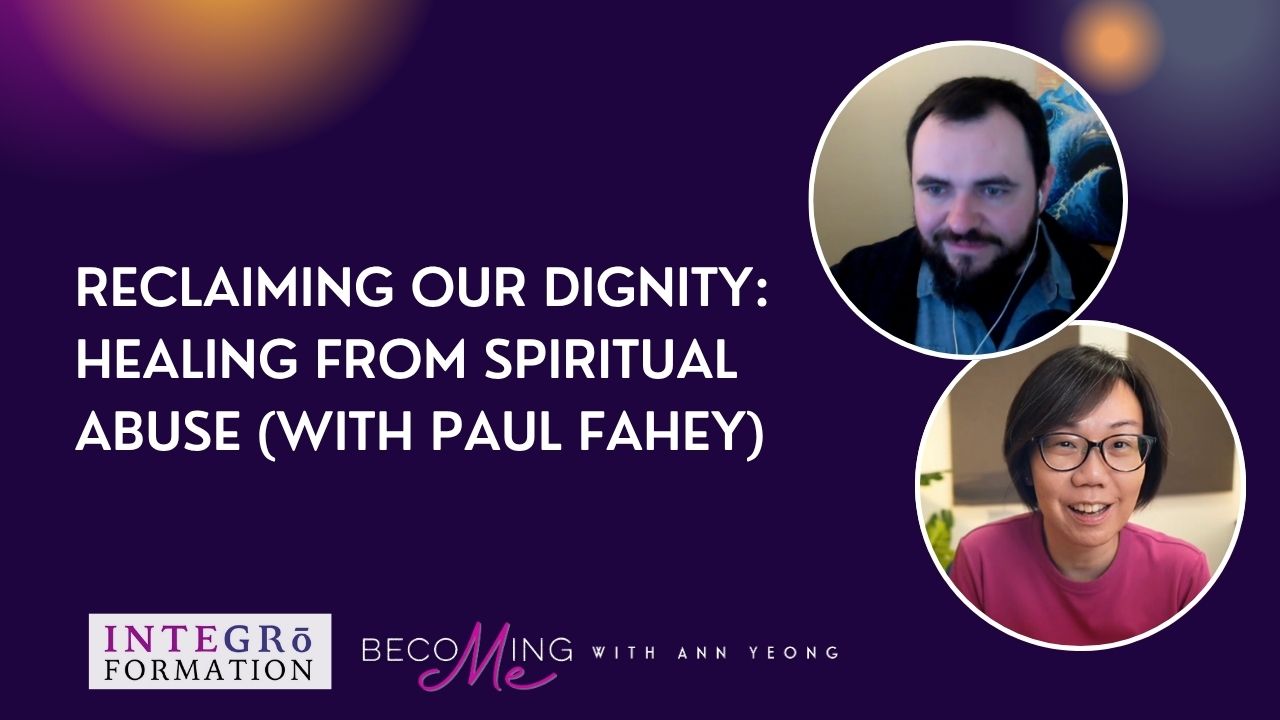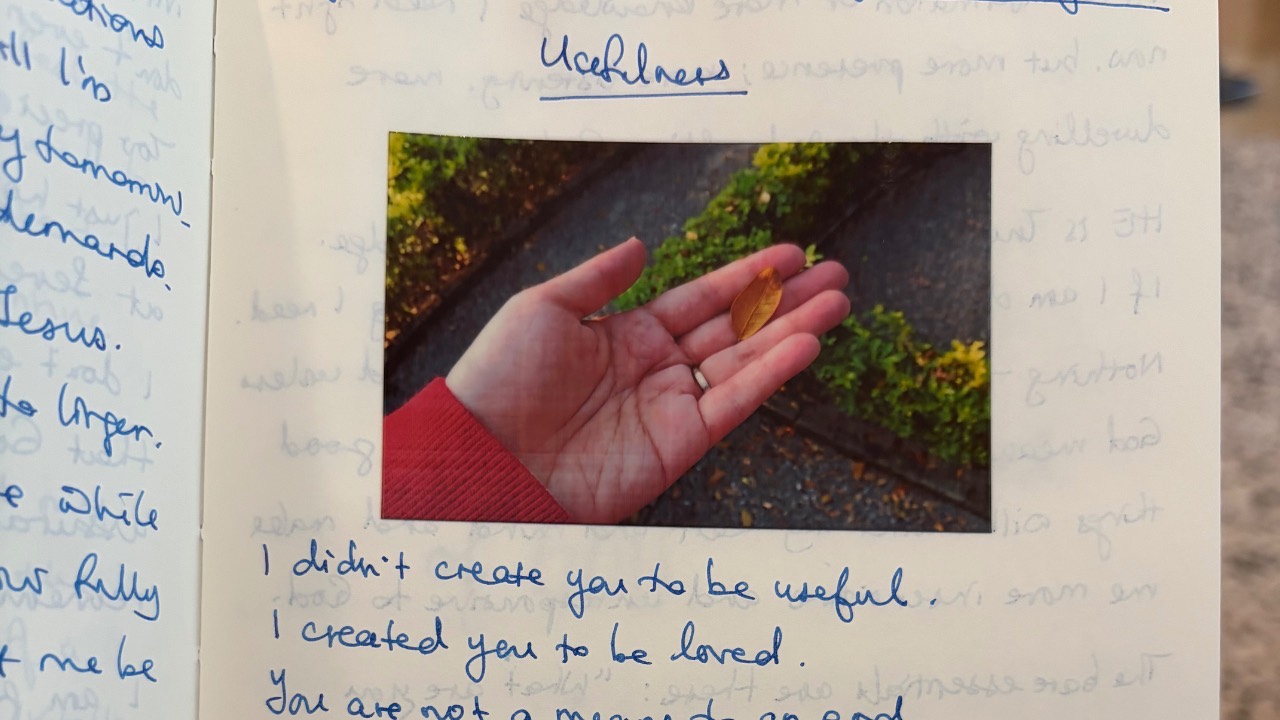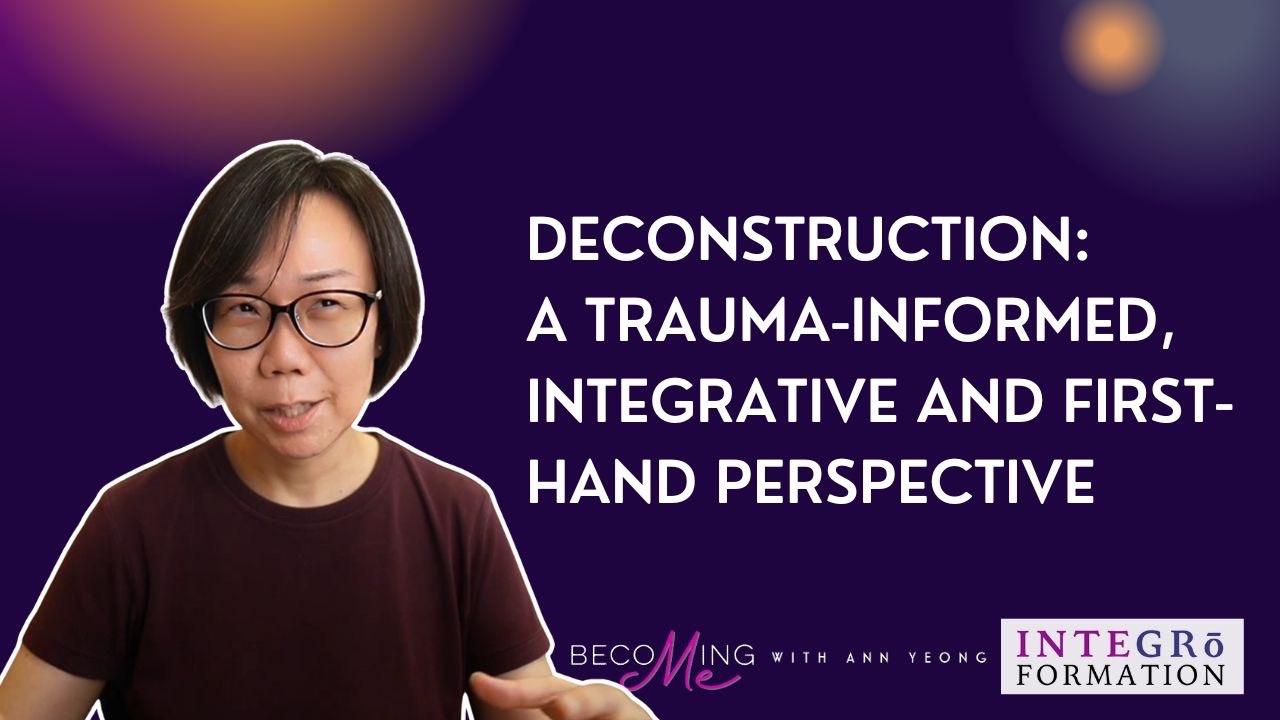Spiritual Abuse in a Catholic Context
If you wish to learn about spiritual abuse in a Catholic context, there is a workshop you need to know about! I share about this workshop at the end of this reflection.
If you had asked me 12 years ago when I was in full-time parish ministry overseeing evangelisation, faith formation and discipleship if I thought that Spiritual Abuse was an essential topic to include in formation, I would have said "no". If you were to ask me that today, I would answer "Yes!" without hesitation. Let me share three reasons why:
1. Spiritual Abuse destroys God's people "invisibly" from within
In the last 4-5 months since I started sharing more about spiritual abuse in my content I have heard more stories than I ever had from survivors about their experiences of spiritual abuse. These survivors hail from different countries in the world and what is striking to me is how many of them have been or still are part of religious congregations and lay ecclesial movements known for mission and evangelisation, and/or have been involved in full-time lay ecclesial ministry.
Most of the survivors I have heard from are people who are deeply committed to their Catholic faith and were actively involved in minstry or mission of some form. The devastation they have experienced came from people they looked up to and trusted as spiritual authorities and mentors - most (or even all) of which are still people in good standing in the Catholic Church.
Spiritual abuse is insiduous because it happens so often in the name of missionary zeal, orthodoxy and disciple-making and perpertrators (both individual and communal) are often those held up as examples of spiritually fruitful evangelisers and standard bearers of the Catholic faith.
Most of the survivors I have heard from are people who are deeply committed to their Catholic faith and were actively involved in minstry or mission of some form. The devastation they have experienced came from people they looked up to and trusted as spiritual authorities and mentors
2. Spiritual Abuse distorts how faith is passed on from one generation to the next
It isn't only in ministries, faith communities, religious congregations and ecclesial movements that spiritually abusive dynamics exist and wreak havoc on our ability to develop a trusting and loving relationship with God, Self and Neighbour. Spiritually abusive dynamics and experiences are often hidden within the very fabric of "good Catholic families" too.
A very large proportion of my former coaching clients and people I have accompanied are in the process of healing from complex trauma. Many of them have experienced abusive dynamics in their families of origin and many of those experiences include spiritual abuse. Quite a few of these same people for whom spiritual abuse was a "norm" in their families belong to families who are very active in ministry and/or leadership in church and faith settings. In one notable case, someone that I learned was highly spiritually abusive in a ministry setting turned out to be the same person I have heard about from another source as a spiritually abusive family member. When family members and community leaders are spiritually abusive and yet are embraced by the Church as examplars of "good Catholics", this sets up how faith is evangelised, catechised and passed on intergenerationally.
When family members and community leaders are spiritually abusive and yet are embraced by the Church as examplars of "good Catholics", this sets up how faith is evangelised, catechised and passed on intergenerationally.
3. Spiritual Abuse makes it impossible to witness our faith in Jesus Christ with integrity
Abuse of any kind is antithetical to the love of God and to authentic discipleship of Jesus Christ. And yet the history and legacy of the Christian/Catholic faith is riddled with egregious religious and spiritual abuse. This is true not only in the distant past (which we often dismiss and minimise today), but is still true today. Spiritual abuse is present in the intimacy of marriage and family bonds, and it is also present in parishes, communities, ecclesial movements, religious congregations and practically everywhere there are believers wounded by trauma and sin.
The hypcrosisy of those who proclaim faith in Christ while simultaneously being blind to how our lives and practices violate the infinite dignity of other human beings - often the very human beings we are most called to love - is a huge reason why more and more people of good will both inside and outside the faith no longer trust the Catholic Church. If we are serious about being able to witness our faith with integrity, we need to be willing to do the hard, confronting work of learning to recognise what spiritual abuse is and heal from it!
*NEW* Spiritual Abuse Workshop by Paul Fahey (September 2025)
I have been learning about spiritual trauma and spiritual abuse in general for the last couple of years and there are some incredible resources out there, but practically all of them come from a Protestant (and often Evangelical) context and background. This does not make them any less valuable, but it does mean that there is extra work that I have had to do to "translate" what I learn into my own lived experience as a Roman Catholic.
This is where Paul Fahey's Workshop on Spiritual Abuse is critical for Catholics - Paul has done a lot of the translation for us AND furthermore integrates that translation with what the Catholic Church actually teaches to illuminate why certain behaviours and dynamics that have become part of experienced "normal Catholic culture" is actually spiritually abusive.
Paul's Spiritual Abuse Workshops are deliberately small (each group is between 5-12 pax) and takes place live online with no recordings so as to preserve the safety and privacy of participants. And I am deeply thankful to Paul for agreeing to open a new timing to his workshops that allows those living in Singapore to attend in the evening.
The image and description below are from Paul's substack page.

This workshop is for:
-
Individuals trying to better understand their experiences of spiritual abuse in the Church
-
Clergy and lay leaders interested in safeguarding their communities from spiritual abuse and abuse of conscience
-
Therapists working with clients who have been spiritually abused
This workshop will help you:
-
Recognise and prevent spiritual abuse and abuse of conscience in the Church
-
Know the symptoms of spiritual abuse, religious trauma, and moral injury
-
Better understand and respond to abusive systems in the Church
I cannot recommend this workshop highly enough. Paul integrates academic research, Church teaching, pastoral-clinical experience as well as his own personal experience and shares an incredible wealth in resources on this topic.
For more information about Paul and this workshop in September 2025 visit: https://www.catholicthirdspace.com/p/spiritual-abuse-workshop-9cc
Listen to / watch my conversation with Paul Fahey on the Becoming Me podcast:
Reclaiming Our Dignity: Healing from Spiritual Abuse
I sincerely hope that you will begin to open your heart to learning more about how spiritual abuse and spiritual trauma is part of your personal story and legacy. This is undoubtedly a long journey and one that God himself must direct.
If signing up for Paul's workshop this September feels like too big a step for you but you would still like to start learning more about spiritual abuse in a Catholic context, you can check out the podcast episode I recorded with him (linked above). Paul and I are planning to record another new conversation on spiritual abuse soon, so keep a look out for that too!
You may also wish to read my other reflections about spiritual trauma and abuse:
- Lament, Hope and Healing: Resources on Spiritual Abuse
- Navigating Holy Week Through Spiritual Trauma and Healing
...for our witness and teaching to have integrity, we need to make the difficult interior journey into our own healing and integration. Awakening to how we have harmed others - especially when all we wanted to do was to love and disciple them - is an essential part of this journey.
Finally, if you are struggling with a nascent awareness that you may have been complicit in and perpetrated spiritual abuse on others, I want to assure you that you are not alone. This is part of what makes the journey into being a trauma-informed Body of Christ so challenging - for our witness and teaching to have integrity, we need to make the difficult interior journey into our own healing and integration. Awakening to how we have harmed others - especially when all we wanted to do was to love and disciple them - is an essential part of this journey.
I have been down that road myself and I share about that in my podcast episode When You Harm Others In Spite of Your Best Intentions. May you experience your own awakening in the mercy and compassion of God's infinite and unconditional love as I did.
Journeying with you,







Responses